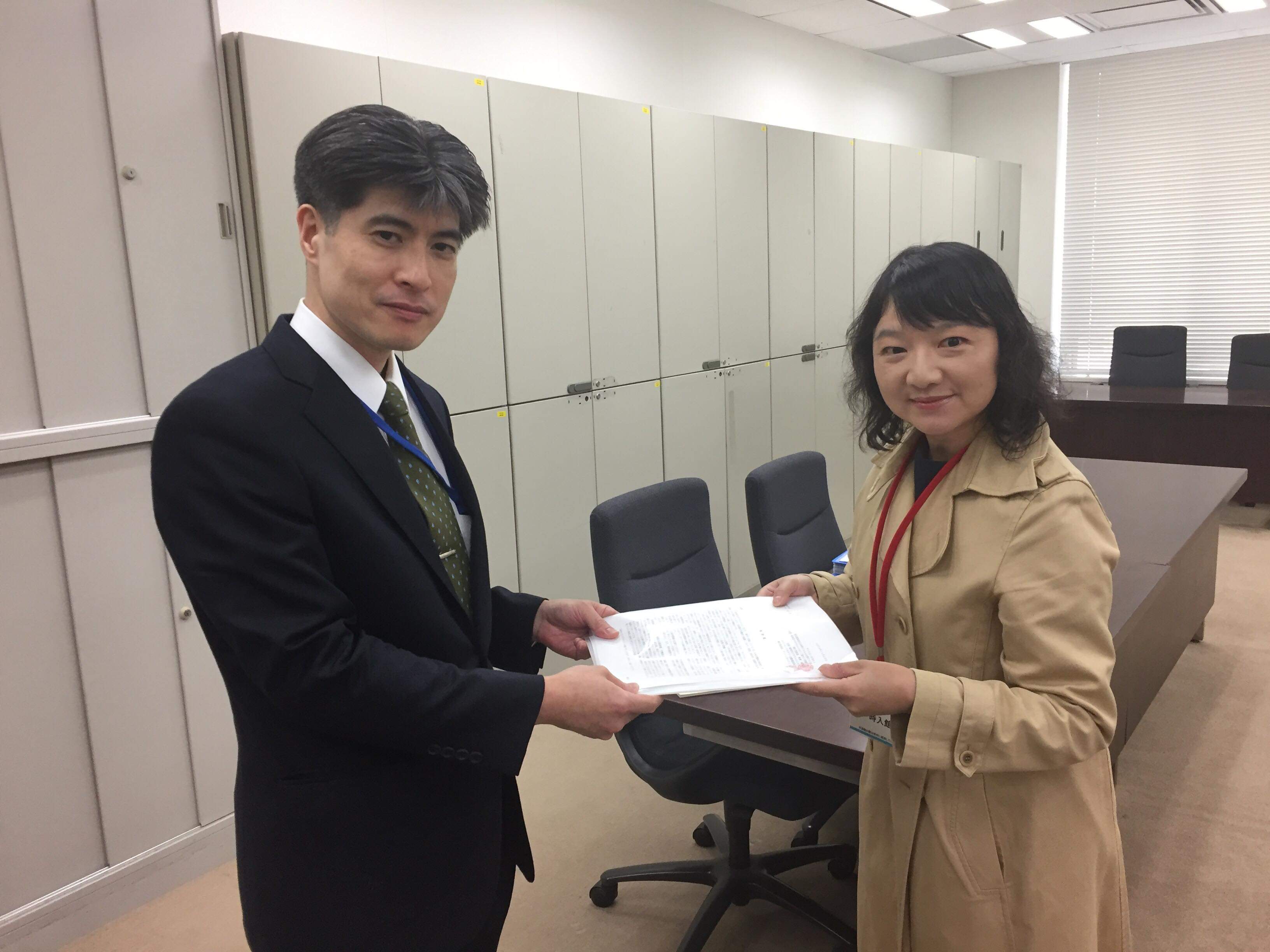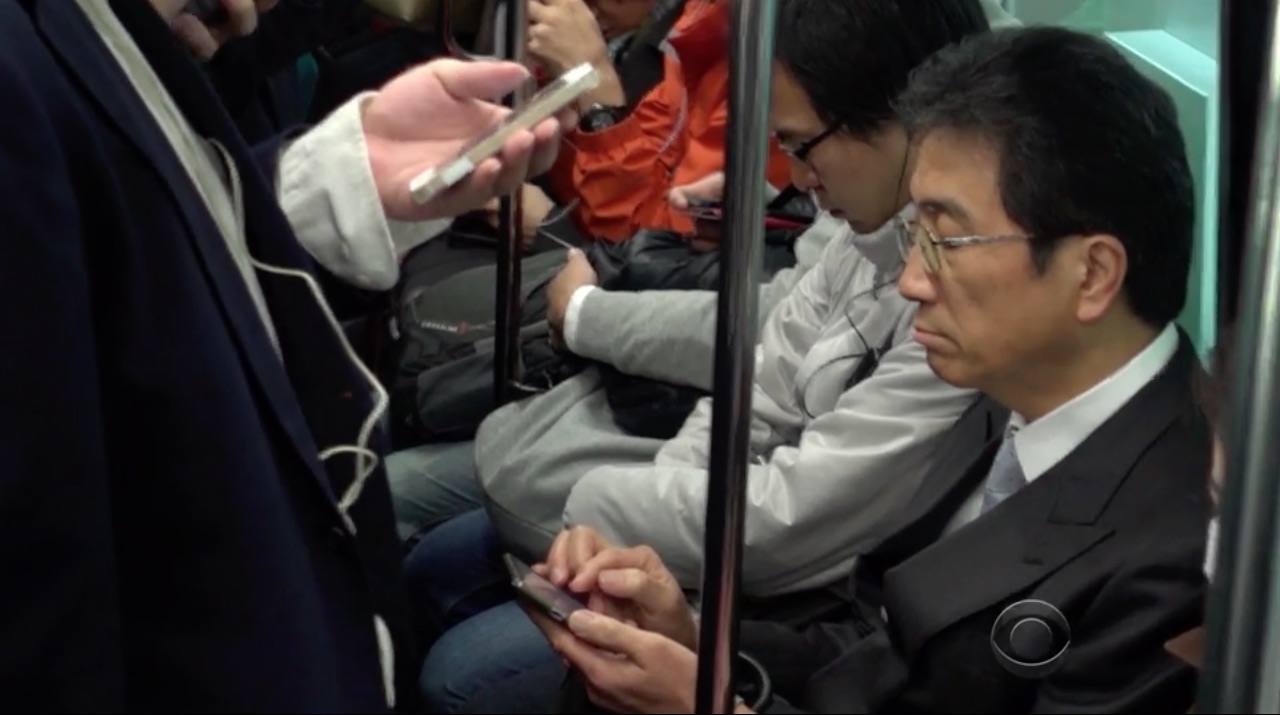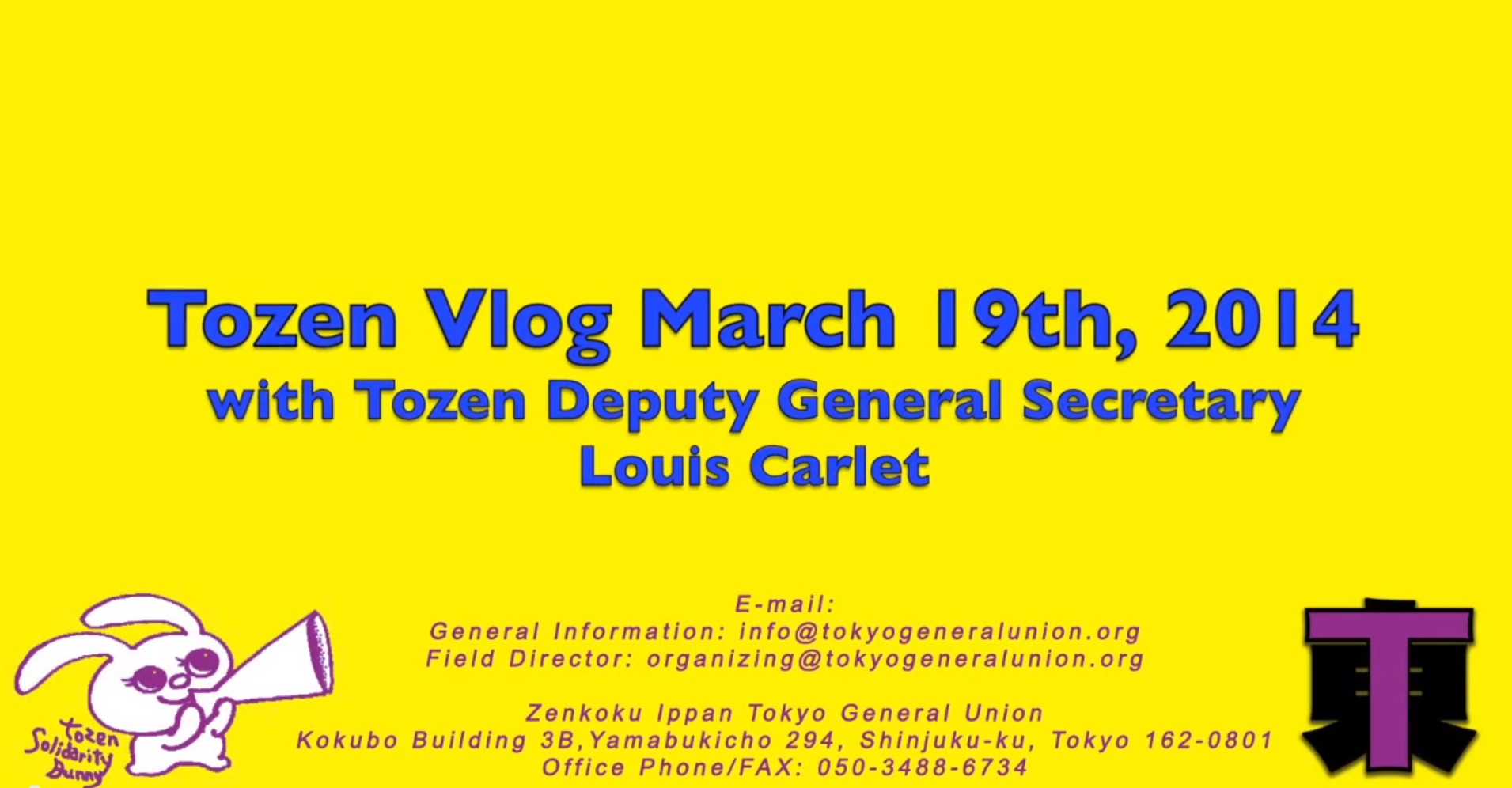Interac teachers in Kanto enter second round of collective bargaining. They’re demanding full-time permanent employment, shakai hoken, a 20% pay raise, a ¥600,000 yearly bonus, a time card, a prior consultation agreement, and a union page on the Interac employee website.
ALT
サイマル講師は、解雇撤回を訴える
2019年3月27日に、ベネッセグループに所属している、語学や通訳育成の(株)サイマル・インターナショナルに勤務していた語学講師5名は、復職を目的として、東京都地方裁判所に地位確認訴訟を提起した。連合東京に加盟している講師の組合(東ゼン労組サイマル国際教員組合)は、その翌日、同社前で抗議行動を行った。
Why Japanese people keep working themselves to death
TOKYO — Years after losing his son, Itsuo Sekigawa is still in shock, grief-stricken and angry.
Straight out of college in 2009, his son Satoshi proudly joined a prestigious manufacturer, but within a year he was dead. Investigators said working extreme hours drove him to take his own life.
The young engineer fell victim to the Japanese phenomenon of “karoshi,” or death from overwork.
Shakai hoken shake-up will open up pensions for some but close door on benefits for others
June 6, 1980, was a Friday. The Social Insurance Agency quietly issued an untitled internal memo called a naikan regarding the eligibility of part-timers in Japan’s shakai hoken health and pension program. Who could have known what chaos, confusion and frustration that single-page document would cause in the coming decades? Let’s get our hands dirty and dig through the details.
For Japan’s English teachers, rays of hope amid the race to the bottom
The major economic engines of Japan Inc. — car manufacturers, appliance giants and the like — have often been caught price-fixing: colluding to keep an even market share, squeeze competitors out and maintain “harmony.” Similarly, the commercial English-teaching business could be accused of wage-fixing: Rather than competing for talent, they have followed one another’s lead, driving down salaries to hamper career development, limit job mobility and keep foreign teachers firmly in their place.
We’ve all heard the tale of the scorpion and the frog. In a rising flood, the scorpion asks the frog for a piggy-back ride across the river. The frog refuses, complaining that the scorpion will sting it to death midway. The scorpion assures the frog it would do no such thing because they would both drown. The frog accepts the logic, lets the scorpion on its back and begins to swim.
AKB48 members deserve to get workers’ comp for saw attack
On May 25, a man wielding a saw attacked and wounded 19-year-old Rina Kawaei and 18-year-old Anna Iriyama, two members of bumper girl group AKB48, and a male staffer at an event where fans get to shake hands with their AKB idols.
Fortunately the injuries were minor, but fans were shocked. The victims and their AKB48 comrades must have been terrified.
Mazda temp-staff practice ruled illegal
Mazda temp-staff practice ruled illegal
Yamaguchi court: Displaced 13 should be regular employees
http://www.japantimes.co.jp/news/2013/03/14/national/mazda-temp-staff-practice-ruled-illegal/#.UVFDtL8WZZJ
YAMAGUCHI – The Yamaguchi District Court ruled Wednesday that Mazda Motor Corp.’s temp-staff employment practice is illegal and recognized regular employee status for 13 former temp-staff workers displaced by the automaker.
The rare recognition that displaced temporary workers should be regular employees is expected to affect similar pending lawsuits. The court also ordered Mazda to pay wages that the 13 should have received as regular employees.
The temp-staff worker law requires companies to directly employ workers dispatched by temporary staffing agencies if the employees continue work at the firms for three consecutive years.
Under its temp-staff employment practice, Mazda directly employed temporary workers as “support employees” for just three months after their three consecutive years of service, later shifting their status back to temps.
The practice to effectively maintain workers as temporary staff for more than three years violated the temp-staff worker law, the court said.
The ruling came in a suit filed by 15 plaintiffs — some of whom worked as temporary staff at Mazda’s Hofu plant in Yamaguchi Prefecture for up to five years and seven months before being displaced during or after the outbreak of the global financial crisis in December 2008.
The court found 13 of the 15 plaintiffs as subject to the support employee system and recognized them as regular employees.
The plaintiffs filed the lawsuit in April 2009, claiming that Mazda had been adjusting the hiring period to be less than three years by temporarily hiring temp-staff employees as regular employees for about three months under the “support employee” system.
The plaintiffs said the system allowed Mazda to “hire skilled temp workers for a long time but fire them whenever they wanted,” calling the act “loophole.”
Meanwhile, Mazda had claimed that temp workers had accepted to work as temp staff and “support employee” positions out of their own volition.
“Mazda had not intended it, and therefore, it does not violate the law,” Mazda’s lawyers said in court.
Mazda called the decision regrettable, adding that it will consider what to do after pouring over the content of the ruling.
In June 2009, the Yamaguchi and Hiroshima prefectural labor bureaus recommended that Mazda correct the “support employee” system.
Shinji Eto, 48, one of the plaintiffs who had been displaced by Mazda, told the court last April that he just wanted to live a normal life, being paid for his work and occasionally being able to go out for drinks with friends.
“I want to say with pride that producing cars at Mazda is my job,” Eto said. “I just want to live a normal life.”
Demands submitted to Interac/Maxceed concerning Drug Testing
株式会社インタラック 御中
株式会社マクシード 御中全国一般東京ゼネラルユニオン
執行委員長ルイス・カーレット
全国一般東京ゼネラルユニオン
東ゼンALT支部
執行委員長アムジッド・アラム
緊急団交申し入れ Emergency Request for CB
全国一般東京ゼネラルユニオン(略称:東ゼン)ならびに全国一般東京ゼネラルユニオン東ゼンALT支部は、貴社に対して、緊急団体交渉を申し入れます。貴社は先日、当組合員らを含む従業員らに対して、薬物検査を受けるよう指示したと伺いました。薬物検査は、通常の雇用関係においてはこれを行う必要性が認められず、よほどの事情がない限り、従業員に広く行われるものではないはずです。昨今の個人情報保護の重要性に鑑みても、安易にこのような検査を実施することに対して、大きな疑問を抱きます。
つきましては、下記の議題にて団交を実施したく存じます。
Zenkoku Ippan Tokyo General Union (“Tozen”) and Zenkoku Ippan Tokyo General Union Tozen ALTs request emergency collective bargaining. We have heard that you instructed your employees, including union members, to undergo drug testing. The need for drug testing is not accepted for an ordinary employment relationship and drug testing of employees in general is accepted only in extreme circumstances. We strongly oppose your casual testing of employees also in light of recent requirements to protect individual privacy, including the passage of Individual Information Law, We therefore ask for cb with the agenda stated below.
記
Bill passed to lift temp workers’ lot but no manufacturer dispatch ban
The Diet passed a bill Wednesday to amend the Workers Dispatch Law, aiming to improve the working conditions of temporary employees.
The revision forbids dispatch agencies from contracting temporary workers for 30 days or less. Also, employers will be urged to give temp workers the same pay as regular employees if they’re doing the same work.
But the revision will not fully protect nonregular workers. The Democratic Party of Japan’s plan to ban temporary workers from being dispatched to the manufacturing sector was scrapped under pressure from the Liberal Democratic Party and New Komeito.
The DPJ submitted a bill in April 2010 that included a ban on sending nonregular workers to factories after thousands of temps were laid off and left homeless when the slump hit in 2008.
The ban was featured in the party’s platform for the 2009 election.
The dispatch law, which regulates the treatment of temporary workers, was loosened to employers’ advantage when the LDP was still in power.
In 1999, it was revised to allow temporary workers to work in almost all industries except for manufacturing and health care. In 2003, it was amended to let temps work in the manufacturing industry.
These changes allowed manufacturers to lay off temp workers easily when the global financial crunch hit in 2008, and many became jobless and homeless, especially those who had been provided with company housing.





